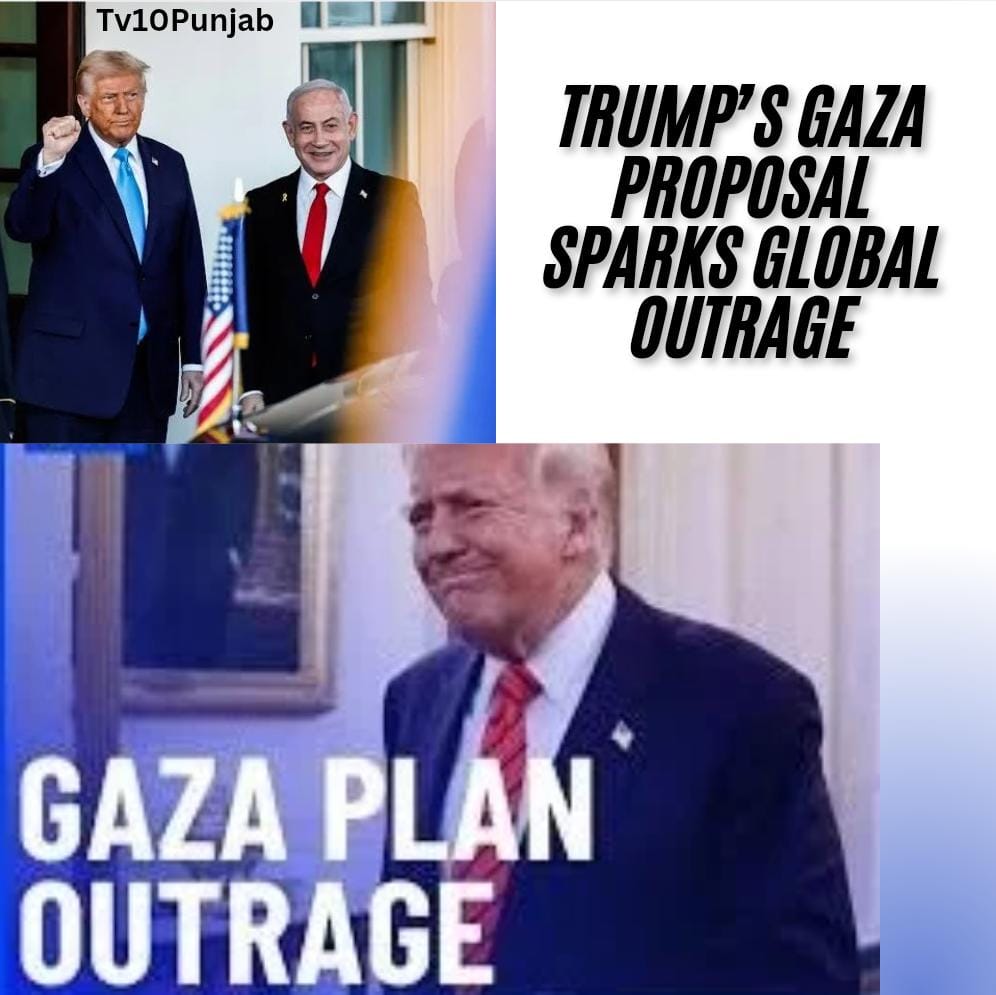Sandeep Dhand
Journalist And Research Analysis
In a recent statement, former U.S. President Donald Trump suggested that the U.S. could “occupy” Gaza and resettle its population. This controversial proposal, made alongside Israeli Prime Minister Benjamin Netanyahu at a White House press conference, has drawn widespread criticism.
Many global leaders, human rights organizations, and the United Nations have condemned the idea, labeling it as a form of ethnic cleansing. The Arab League and various international bodies argue that forcibly displacing millions of people is a crime against humanity.

The question arises: What is ethnic cleansing, and how is it different from genocide?
Ethnic cleansing refers to the forced removal of a particular ethnic or religious group from a specific geographic area. This can be done through direct expulsion, intimidation, violence, or other means that make life impossible for the targeted group in their homeland.
This term became widely known in the 1990s during the breakup of Yugoslavia when ethnic conflicts led to mass displacement and atrocities. It was used to describe the forced displacement of Bosniak Muslims, Croats, and Serbs in different regions.
Ethnic cleansing is not officially recognized as a distinct crime under international law. However, the methods used—such as violence, mass killings, rape, and destruction of cultural heritage—can be classified as war crimes or crimes against humanity.
While both ethnic cleansing and genocide involve targeting a specific group, there is a key difference:
Genocide is the intentional destruction of a racial, ethnic, or religious group, either by mass killings or by actions that prevent their survival (such as forced sterilization or destruction of resources).
Ethnic cleansing, on the other hand, is focused on removing a group from a certain area rather than outright extermination.
The Rwandan genocide (1994) was a case of genocide, where nearly 800,000 Tutsis and moderate Hutus were killed.
The Rohingya crisis in Myanmar (2017) was widely labeled as ethnic cleansing, where military forces forced hundreds of thousands of Rohingya Muslims to flee to Bangladesh.
Despite its severe consequences, ethnic cleansing is not explicitly listed as an international crime under the United Nations’ legal framework. However, its associated acts—such as mass killings, forced displacement, and destruction of cultural sites—are considered crimes against humanity.
International courts, including the International Criminal Court (ICC) and International Criminal Tribunal for the former Yugoslavia (ICTY), have prosecuted individuals for war crimes related to ethnic cleansing.
In 1998, former Rwandan Prime Minister Jean Kambanda was the first government leader convicted of genocide.
In 2001, Bosnian Serb leader Radislav Krstić was convicted for his role in the Srebrenica massacre, where over 8,000 Muslim men and boys were killed.
Trump’s statement about occupying Gaza and resettling its population has raised serious concerns. If the proposal involves:
Forcibly removing Gaza’s population
Destroying their homes and infrastructure
Eliminating Palestinian cultural and religious sites
then it aligns with the definition of ethnic cleansing.
However, whether such an act would be prosecuted as an international crime depends on the intent behind it. If the goal is to permanently displace a population based on ethnicity, it could be classified as a crime against humanity.
The Historical Context: Gaza and Forced Displacement
The Gaza Strip has long been a center of conflict between Israel and Palestine. Displacement of Palestinians dates back to 1948, during the creation of Israel, when 750,000 Palestinians were expelled from their lands in an event known as the Nakba (“catastrophe”).
Over the decades, Israel has been accused of gradually displacing Palestinians through military occupation, settlement expansion, and blockades. If Trump’s proposal were implemented, it could be seen as a continuation of this process on a much larger scale.
Global Reactions to Trump’s Statement
International reactions to Trump’s comments have been overwhelmingly negative.
The United Nations has warned that forcibly relocating millions of people is a violation of human rights.
The Arab League has called it a potential crime against humanity.
Human rights organizations argue that such actions could lead to mass suffering, economic collapse, and regional instability.
Trump’s proposal to resettle Gaza’s population has sparked serious concerns about ethnic cleansing and violations of international law. While the legal definition of ethnic cleansing remains debated, history has shown that mass displacement based on ethnicity leads to immense human suffering.
If world leaders and international bodies do not take a firm stance, such policies could set a dangerous precedent for future conflicts. The Gaza crisis remains one of the most sensitive humanitarian issues, and any forced removal of its people would have devastating consequences.
